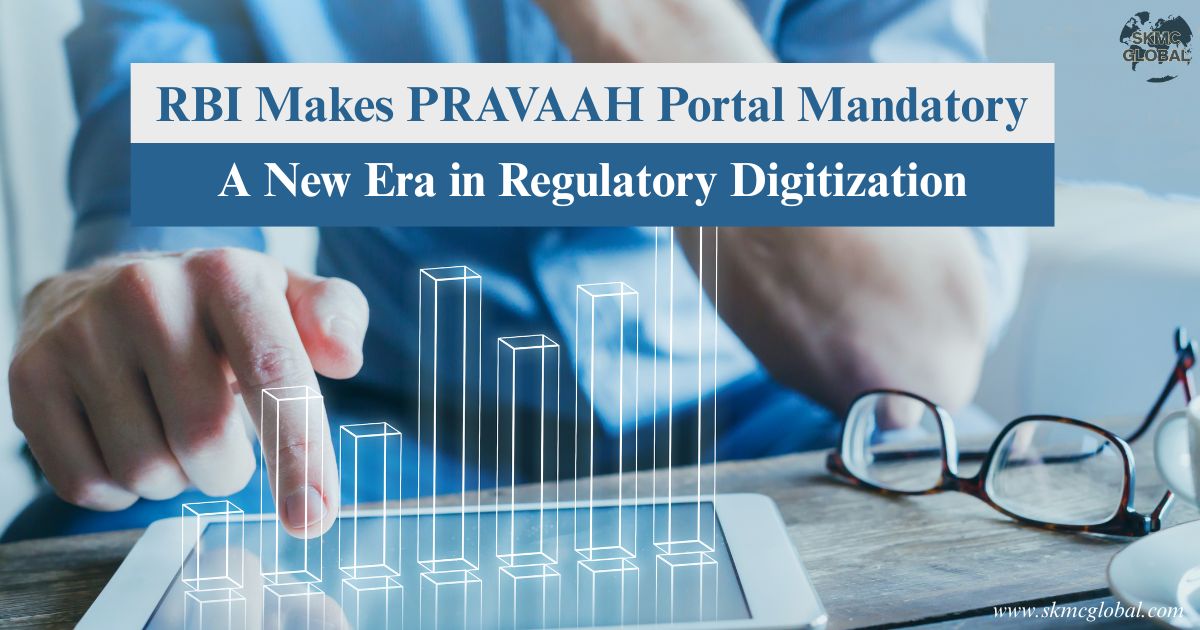
Role of Key Management Personnel and their appointment under Company Law
In the complex web of corporate governance, where the strategic vision is determined by the duties and role of members of the board of directors, the skilled pilots who put the vision into practice and steer the firm through the dailies and regulatory currents are the key managerial personnel (KMP). With the Companies Act, 2013, appointment and working of key managerial personnel are not administrative formalities but the core of strong corporate governance since they are instrumental in bringing efficiency, accountability, and long-term growth. This article examines who these significant individuals are, why precisely it is so essential that they be appointed, what is the very process behind it, and how the dynamics of duties and role of the board of director shifting in today's Indian corporate management are.
Who is Also Known as Key Managerial Personnel (KMP)?
Key managerial personnel have been specified under the Companies Act, 2013, under Section 2(51), as they are referred to be such key persons who are employed primarily for administering and managing a company efficiently. They are the entire-time employees who serve in the most crucial executive positions and are mandated to take strategic decisions and take care of the day-to-day affairs.
The Designated Individuals:
- Chief Executive Officer (CEO) or Managing Director (MD) or Manager: The senior executive most responsible for overall strategic and operational direction.
- Company Secretary (CS): The compliance officer whose main responsibility is compliance with legislation and regulation and as the nerve center of the company's relationship with its myriad of stakeholders and regulators. In corporate governance, the role of the board of directors is key—and the board secretary plays a vital part in helping them work effectively and stay aligned with good governance practice.
- Chief Financial Officer (CFO): The company's chief financial officer who is in charge of financial planning, reporting, and risk management.
- Whole-Time Director (WTD): Company whole-time employee director. It usually overlaps with MD or CEO functions.
- Such other officer (not more than one level below the whole-time director or MD or CEO or Manager and who is in whole-time employment): As may be defined by the company board of directors as the key managerial personnel. This provides flexibility to companies to recognize other such significant functional heads as key managerial personnel according to their internal hierarchy and significance.
This salient distinction is in the interest of consolidating accountability and attributing responsibility within the organizational hierarchy, demarcating these crucial functionaries from the general members of the board of directors.
Relevance of Appointing KMP under Companies Act, 2013
The Companies Act, 2013 provision of appointing key managerial personnel (KMP) under Section 203 aims at corporate management professionalization and governance enhancement. It provides focused expertise in key functions like operations and compliance.
- Professional Management: KMPs provide specialist expertise to strategic, financial, and regulatory positions for effective leadership.
- Corporate Governance: They enable decision making by the board, ensure transparency and integrity, while the board monitors their performance.
- Compliance & Risk Mitigation: Company Secretary, as a KMP, is accountable for maintaining statutory compliance and reducing regulatory risk.
- Accountability: Statutory status of the KMPs offers an open responsibility system, facilitating identification of responsibility in the event of default or mismanagement.
- Statutory Mandate for Special Companies:
-Listed Company: Each Listed Company shall have a whole-time MD/CEO/Manager, Company Secretary, and Chief Financial Officer.
-Public Company: Every Public Company with a paid-up share capital of INR 10 Crores or more is also obliged to appoint the said whole-time KMPs.
-Private Company: Each Private Company with a paid-up share capital of INR 10 Crores or more will be obliged to appoint a whole-time Company Secretary (as provided in Rule 8A of the Companies (Appointment and Remuneration of Managerial Personnel) Rules, 2014).
This tiered requirement mirrors the increasing seriousness and public interest that accompany larger companies, but one that requires an increasingly formalized executive hierarchy.
Procedure of Appointment of KMP under Companies Act, 2013
The appointment of key managerial personnel is a legal and solemn process to ensure that efficient professionals are appointed at these positions of importance. It is accompanied by approvals and filings, the seriousness with which these appointments are made under the law of companies.
A. Board Resolution and Terms of Appointment:
- The first is the passing of a Board Resolution by a duly convened members of the board of directors meeting. It formally appoints the KMP and outlines in minute detail terms and conditions of such appointment, e.g., remuneration of director (in case of MD/WTD), term of office, and functions.
- For MD/WTD/Manager appointments, the order should also state the nature of their responsibilities and the term of appointment, which shall not extend to five years at a time. Re-appointment is allowed but not more than one year before the expiry of the term.
B. Conditions for Appointment (Section 203(3)):
- Non-Concurrent Holding of Office: A general rule is that a full-time KMP (except a Managing Director or Manager) should not occupy an office in more than one company at a time, except in a subsidiary company. This avoids conflicting loyalties and ensures focused concentration.
- Director in Other Companies: A KMP should not, however, be disqualified from serving as a director of another company, provided that he or she obtains clearance from the Board.
- Chairperson and MD/CEO Role Distancing: The Act seeks to distance the role of Chairperson of the Board and Managing Director/CEO from one another to discourage power concentration in the hands of an individual. An individual cannot occupy both positions simultaneously except when the Articles of Association itself allow for such possibility or when the company has not multiple businesses (though exceptions could be intimated by the Central Government in the case of multiple business companies having more than one CEO). This is also attention to decentered power and effective control by the placement of the board of directors.
C. Filling of Casual Vacancy (Section 203(4)):
- In the event of any vacancy in the position of any whole-time key managerial personnel, the company board of directors shall fill such vacancy through a Board meeting within a period of six months from the date of occurrence of such vacancy. This is to ensure rapid replacement of key executive talent and business continuity.
D. Statutory Filings (Form MR-1, DIR-12, MGT-14):
- Prescribed forms are to be filed by companies with the Registrar of Companies (ROC) on the appointment of KMPs.
- Form MR-1: For sole use of appointment of a Managing Director, Whole-time Director, or Manager. The form has been rendered more efficient by the Companies (Appointment and Remuneration of Managerial Personnel) Amendment Rules, 2023. The form is to be filed within 60 days of appointment.
- DIR-12 Form: To report appointment of directors, including whole-time directors who are also KMPs.
- Form MGT-14: It may be necessary in the event of filing special resolutions regarding KMP appointments if and when the compensation of the board of director or KMP exceeds particular levels or in the event of special conditions.
E. Recent Amendments and Discussions:
- Companies (Appointment and Remuneration of Managerial Persons) Amendment Rules, 2023: Published on January 19, 2023, these rules mainly amended Forms MR-1 and MR-2 (Central Government approval with respect to remuneration). These amendments aim to ease the information to be furnished to report managerial appointments and managerial remuneration so that it is better and easier for companies to comply.
- Emergence of Greater Vigilance over Board Effectiveness: There is widespread international and Indian conversation regarding the function of company directors, notably, the function of the board of directors when it relates to overseeing KMPs and the fact that the company board of directors is sufficiently effective in its governing function. This encompasses board of directors debates and discussions regarding categories of board of directors (e.g., non-executive, executive, independent), board of directors compensation, and board of directors composition and committee composition (e.g., the Nomination and Remuneration Committee) to make objective and merit-based appointments of KMP and equitable compensation of the board of director.
- SEBI's focus area: For the listed companies, SEBI continues to emphasize more transparency in key managerial personnel appointments and compensation. The focus is here on tying key managerial personnel compensation to performance parameters and making clear disclosures in annual reports. This indirectly impacts the overall policy on key managerial personnel appointments by promoting a high correlation among their functions, accountability, and compensation structure.
- Technological Integration in Governance: There's a growing trend towards leveraging technology for more efficient KMP appointment processes, digital record-keeping, and streamlined filings, reducing manual errors and improving compliance.
Conclusion
The key managerial personnel are the backbone of modern-day corporate India and are accountable for the operational effectiveness, compliance, and economic well-being of the company. The Companies Act, 2013 focuses on professional and transparent governance by way of systematic appointments, well-defined responsibilities and role of the board of directors, and managed remuneration.
Needed key managerial personnel appointments, altering procedures (like the 2023 MR-1 revisions), and regulatory focus reflect the push for effective internal controls. Key managerial personnel translate board vision to fact, whereas the board has the obligation to see that key managerial personnel meet legal and ethical standards.
In their role as statutory directors, key managerial personnel move beyond staff functions—to direct risk reduction, compliance, and sustainable growth. Grasping both their role and that of the board is a necessity of compliance and strategy for ensuring long-term corporate success.
Recent Posts
-
 The Step-by-Step NGO Registration Process in India...
Jan 17,2026
The Step-by-Step NGO Registration Process in India...
Jan 17,2026
-
 Secretarial Audit for Unlisted and Private Compani...
Dec 19,2025
Secretarial Audit for Unlisted and Private Compani...
Dec 19,2025
-
 How to Get CTE and CTO under Environmental Laws in...
Nov 27,2025
How to Get CTE and CTO under Environmental Laws in...
Nov 27,2025
-
 Step by Step guide for appointment of Independent ...
Nov 06,2025
Step by Step guide for appointment of Independent ...
Nov 06,2025
-
 Liaison Office vs Branch Office: A comparative ana...
Sep 02,2025
Liaison Office vs Branch Office: A comparative ana...
Sep 02,2025
-
 Role of Shareholders Agreement in Startups and Inv...
Aug 30,2025
Role of Shareholders Agreement in Startups and Inv...
Aug 30,2025
-
 Setting Up a Wholly Owned Subsidiary (WOS) in Indi...
Aug 12,2025
Setting Up a Wholly Owned Subsidiary (WOS) in Indi...
Aug 12,2025
-
 Arbitration v/s Litigation in India...
Aug 05,2025
Arbitration v/s Litigation in India...
Aug 05,2025
-
 Declaration of Dividend under Companies Act, 2013...
Aug 02,2025
Declaration of Dividend under Companies Act, 2013...
Aug 02,2025
-
 What is MSME Form 1 and how it can be filed?...
Aug 01,2025
What is MSME Form 1 and how it can be filed?...
Aug 01,2025
-
 What is CSR and how to compute the contribution am...
Jul 31,2025
What is CSR and how to compute the contribution am...
Jul 31,2025
-
 Process for removal of company auditor under Compa...
Jul 31,2025
Process for removal of company auditor under Compa...
Jul 31,2025
-
 What is SBO Compliance and when it is needed?...
Jul 29,2025
What is SBO Compliance and when it is needed?...
Jul 29,2025
-
 Role of Key Management Personnel and their appoint...
Jul 28,2025
Role of Key Management Personnel and their appoint...
Jul 28,2025
-
 Registering a Partnership Firm in India...
Jul 28,2025
Registering a Partnership Firm in India...
Jul 28,2025
-
 Procedure to strike off a company...
Jul 28,2025
Procedure to strike off a company...
Jul 28,2025
-
 sox and internal control...
Jul 17,2025
sox and internal control...
Jul 17,2025
-
 ICFR Applicability as per the Companies Act, 2013...
Jul 15,2025
ICFR Applicability as per the Companies Act, 2013...
Jul 15,2025
-
 Concept of Sweat Equity Shares and its uses...
Jun 25,2025
Concept of Sweat Equity Shares and its uses...
Jun 25,2025
-
 Whether loans and borrowing are considered as depo...
Jun 18,2025
Whether loans and borrowing are considered as depo...
Jun 18,2025
-
 What are the major compliance for unlisted compani...
Jun 05,2025
What are the major compliance for unlisted compani...
Jun 05,2025
-
 A Guide to Compensation to Director in Indian Corp...
Jun 04,2025
A Guide to Compensation to Director in Indian Corp...
Jun 04,2025
-
 Loans to Company Directors- A Legal and Ethical Fr...
Jun 04,2025
Loans to Company Directors- A Legal and Ethical Fr...
Jun 04,2025
-
 Top 7 Things You Must Know About External Commerci...
May 16,2025
Top 7 Things You Must Know About External Commerci...
May 16,2025
-
 Integrating CSR into Your Business Model:A Step-by...
May 14,2025
Integrating CSR into Your Business Model:A Step-by...
May 14,2025
-
 What are the applicable Labour Laws in HR (Human R...
May 14,2025
What are the applicable Labour Laws in HR (Human R...
May 14,2025
-
 Unveiling the PRAVAAH Portal: A Comprehensive Guid...
Apr 18,2025
Unveiling the PRAVAAH Portal: A Comprehensive Guid...
Apr 18,2025
-
 FLA Return and its compliance...
Feb 08,2022
FLA Return and its compliance...
Feb 08,2022
-
 Process of closure of Branch office in India...
Dec 30,2021
Process of closure of Branch office in India...
Dec 30,2021
-
 Steps to Shut down the Liaison Office in India...
Sep 14,2021
Steps to Shut down the Liaison Office in India...
Sep 14,2021
-
 Procedure for closure of Project Office in India...
Aug 10,2021
Procedure for closure of Project Office in India...
Aug 10,2021
